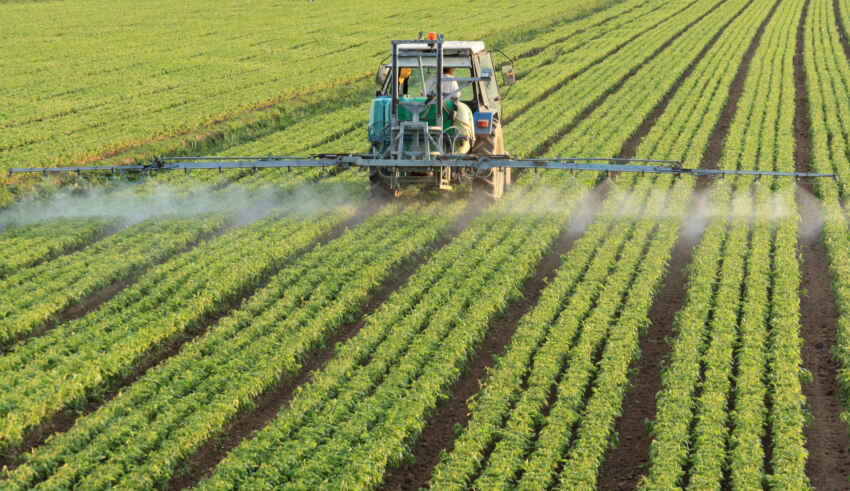
Climate Change action has been one of the most touched topics within the EU, one of the target areas to ensure that there is a lowering of emission levels is in agriculture as it provides high levels of nitrogen emissions which cause environmental problems. As an adaptive measure, the Common Agriculture Policy (CAP) was provided by the EU, in turn Belgium, more specifically the Flemish government, adopted this policy by applying the Programmatic Approach to Nitrogen (PAS) that aims to reduce the deposition of nitrogen in Special Protection Zones and to provide a framework for granting permits.[1] The issue arises because nitrogen is an essential element in fertilizers for animals, food for animals and people, and everyone needs it to survive. It makes up 78% of the atmosphere which plants absorb it through the soil, and crops need a large amount of nitrogen to support their growth and nutritional value which 50% comes from fertilizers. When growing crops the process results in leaks of nitrogen when the fertilizers is applied to fields and it is lost to the atmosphere as ammonia, nitrous, dinitrogen and nitrogen oxides, and to water bodies as dissolved organic forms and nitrates. There can be lost of nitrogen by other actions such as by animal waste. Thus there is the promotion of working towards a precision farming techniques by avoiding the use of a high amount of nitrogen fertilizers.
In Belgium, there is an intense livestock farming and the use of fertilizers that contribute to nitrogen pollution. In fact, 45.07% of land areas are for agriculture and these fields are mostly in the Flemish areas of the country, this means that Flanders must cut nitrogen pollution in order to receive EU funds under CAP. Most polluting farms cannot comply with EU limitations without implementing radical changes to farming practices, this may result in most farms in the north of Belgium being forced to close down. As a result, on March 3rd 2023, there was a strike from 2,700 farmers of Belgium’s north region of Flanders who rolled with tractors in the city of Brussels. The plan to reduce nitrogen emission did not stir well within the farmers community as it is already hard to provide high levels of production and also without the necessary funding there cannot be an effective method to ensure the policy is respected. A solution for this would be with regenerative agriculture measures that need a great deal of innovative technology, hence heavier funding schemes. These farmers have been promised funding in order to stay in business and be able to comply with the plan to reduce nitrogen emissions. The inability of providing such funds becomes a greater inconvenience for the EU as this disproportionally affects people in the farming business who are not properly protected. There needs to be a better application of funding that goes to these farmers in order to allow them to grow crops with a profitable management.
Moreover, the issue that is left behind is the political strain for Flemish politicians such as the Flemish Christian Democrats, who count on these farmers to elect them have pointed out these cuts are unfair and the burden falls heavy for the farmers. There is unreasonable pressure applied to the farming community, this leads to the Flemish Democrats to reopen discussions of the reduction plan as the original plan wanted the closure of 41 intensive farms located near protected areas by 2025, and to enforce the obligation for thousands of other farms to take measures to reduce their nitrogen emissions, particularly by livestock reduction.[2] The purpose of the reduction plan is to ensure the lowering of emissions in the atmosphere but these actions have to be done taking into account how it affects other people, who are the first ones to feel the discomfort of having to change completely their order of business. It would be difficult to have this decision by the Flemish government not contested on the scale that it affects the whole country. The farmers have made their voices heard and require a better financial support to ensure they are able to effectively abide by the plan.
[1] https://natura2000.vlaanderen.be/nieuwsbericht/openbaar-onderzoek-ontwerp-pas-en-plan-mer [2] https://radioawledna.com/2023/03/03/belgique-manifestation-dagriculteurs-contre-un-plan-de-reduction-des-emissions-dazote/By The European Institute for International Law and International Relations.















